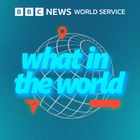
What in the World
Sep 18, 2024
Sex education is a hot topic around the world. In Hong Kong, the Education Bureau has released teaching materials that suggest teenagers who want to have sex with each other should “go out to play badminton together” instead. The materials also encourage students to “resist” pornography and exercise self-control. That’s opened a discussion about sex education and whether officials understand the needs and concerns of young people.
Koey Lee, a BBC journalist in Hong Kong, explains how young people have reacted to the guidance.
We also hear from Yuri Ohlrichs - a certified sexologist and expert in sex education at Rutgers. That’s an organisation in The Netherlands that works to improve sexuality education and information for young people.
And Yeside Olayinka-Agbola, a sexual health educator in Lagos, Nigeria, explains how she is using apps like Instagram to help young Nigerians get sexual health information they’re struggling to find elsewhere.
Instagram: @bbcwhatintheworld Email: [email protected] WhatsApp: +44 0330 12 33 22 6 Presenter: Hannah Gelbart Producers: Mora Morrison and William Lee Adams Editor: Julia Ross-Roy

